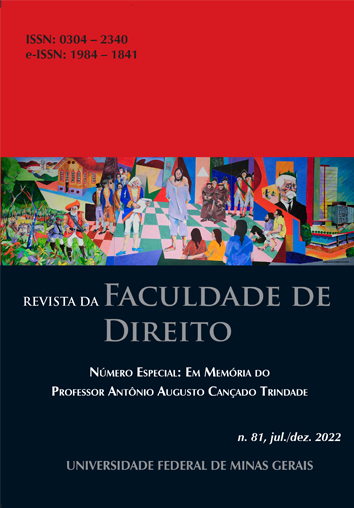THE COMPETENCE OF THE INTERNATIONAL CRIMINAL COURT: SLAVE LABOR AND INTERNATIONAL COOPERATION IN BRAZIL - DOI: 10.12818/P.0304-2340.2022v81p319
DOI:
https://doi.org/10.12818/P.0304-2340.2022v81p319Abstract
Through the analysis of the nature and competence of the International Criminal Court, as well as the rules that underpin its operation, this article aims to determine whether individuals directly responsible for the practice of slave labor can be subjected to the jurisdiction of the International Criminal Court. Therefore, employing a deductive method and case study (Fazenda Brasil Verde and Petition n.4.625 of the Republic of Sudan), it is concluded that despite the inclusion of the crime of slavery and slave labour in the Rome Statute, there are limitations to the exercise of jurisdiction by the International Criminal Court. These limitations, particularly related to the definition of the conduct in the Statute and the elements of the crime adopted by the Assembly of States Parties, make it unlikely for those responsible for slave labor practices in Brazil to be subject to the Court’s jurisdiction. On the other hand, the importance of Brazil’s ratification of the Statute and the resulting duty of cooperation, as well as the expression of submission to the Court in the Brazilian Constitution itself, are briefly analyzed, raising some questions.
Downloads
Published
Issue
Section
License
Copyright (c) 2023 REVISTA DA FACULDADE DE DIREITO DA UFMG

This work is licensed under a Creative Commons Attribution-NonCommercial 4.0 International License.




















